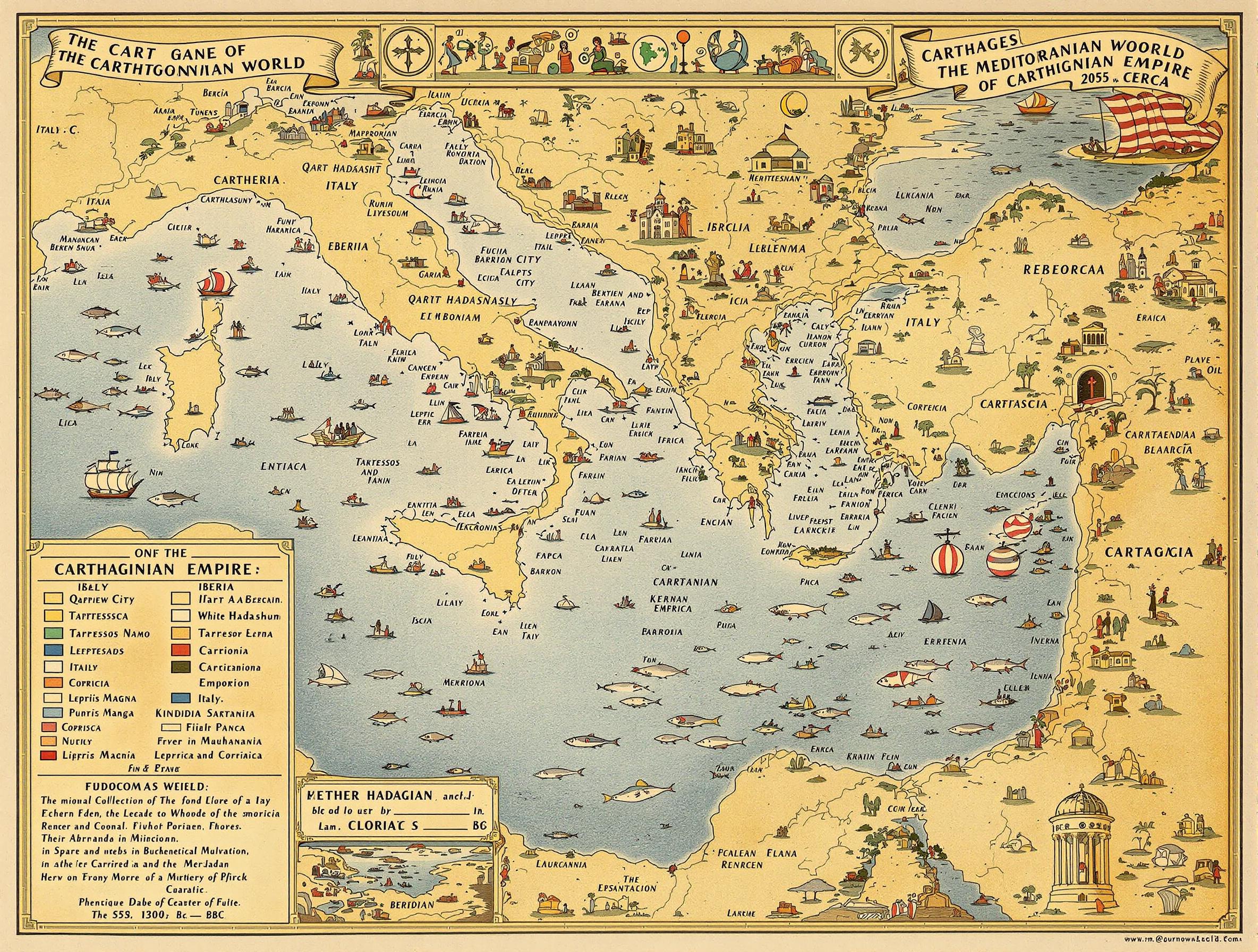History, like a river, flows where geography, time, and events guide it. But sometimes, it takes only a single stone, dropped at the right moment, to shift its course forever. One of those stones nearly thrown is a name echoing through time: Hannibal Barca — the man who came within a breath of erasing Rome from the ancient world. But what if he had succeeded? What superpower would have ruled the Mediterranean if Carthage had won the Second Punic War?
Rome vs Carthage: Two Civilizations, Two Visions of Power
To understand the weight of this alternate history, we must first examine the profound differences between the two rivals. Rome was a militaristic republic, expansionist by nature, built on rigid social structure and a citizenry forged in war. Warfare was a natural extension of politics.
Carthage, on the other hand, was a maritime and commercial power. Oligarchic, governed by a mercantile aristocracy more interested in trade routes, commerce, and profit than territorial conquest. While Rome built roads to march its legions, Carthage sailed the seas to exchange goods. Rome colonized, Carthage negotiated.
Yet Carthage was no less formidable: with control over vast trade networks, immense wealth, and the ability to recruit powerful armies (like the one led by Hannibal), it was a threat Rome could not ignore.
The Turning Point: The Second Punic War
The Second Punic War (218–202 BCE) is seen by many historians as the pivotal moment when the ancient world teetered on a knife's edge. After his daring crossing of the Alps with elephants and men, Hannibal inflicted a series of devastating defeats on the Romans. The most famous, the Battle of Cannae (216 BCE), remains a tactical masterpiece studied to this day.
At that point, Rome was on its knees. Several Italian cities switched sides, either in fear or in hope of a new Carthaginian order. Had Hannibal received reinforcements from Carthage—or had he marched directly on Rome after Cannae—the course of history could have changed forever. In this alternate scenario, we imagine he did just that.
The Fall of Rome and the Rise of Carthage
With Rome conquered or destroyed, its burgeoning empire would have been decapitated. Alliances would have crumbled. Southern Italy, Sicily, Sardinia, and Corsica would have fallen firmly into Carthaginian control. Without Rome, Gaul and northern Spain might have viewed Carthage not as a conqueror, but as a trading partner.
Carthage would have spread its model: more commerce than conquest, more ships than legions, more ports than fortresses. We would have seen thriving port cities on the Tyrrhenian coast, a cultural fusion between North Africa, Iberia, and Italy, and a Mediterranean world shaped by trade, not war.
The sea would not be Rome’s mare nostrum, but Carthage’s mare mercatorum — a merchant’s sea.
The Carthaginian Mediterranean: An Alternate World
Imagine a world where Carthage enhanced its colonies, founding new cities in Italy and expanding eastward along the Adriatic. Semitic languages would have spread across coastal Europe, Punic religion would have merged with local cults. Names like Moloch, Tanit, and Baal might have adorned Italian temples.
Greek culture, already influential in Carthage, would have continued to flourish — but in a less militarized, more trade-driven environment.
Without the Pax Romana, European history might have evolved in more fragmented but fluid ways. Germanic tribes, never directly challenged, would have remained independent longer. Christianity, without Rome as its early incubator, might never have become dominant. Islam, if it emerged, might have encountered a Mediterranean already semitized centuries earlier.
The Fragile Balance of History
Imagining a Carthaginian Mediterranean is not merely a flight of fancy — it is a lens through which we see how much of history depends on the contingent, on battles won or lost, on decisions made or avoided. Rome triumphed, but it was not inevitable. Carthage was ready, and Hannibal came close to the impossible.
Perhaps the real power of history lies not in the victories of the past, but in the questions we ask about the paths not taken — and in the realization that the world could have been vastly different if, on one fateful day in 216 BCE, Hannibal had marched on Rome.








Leave a Comment